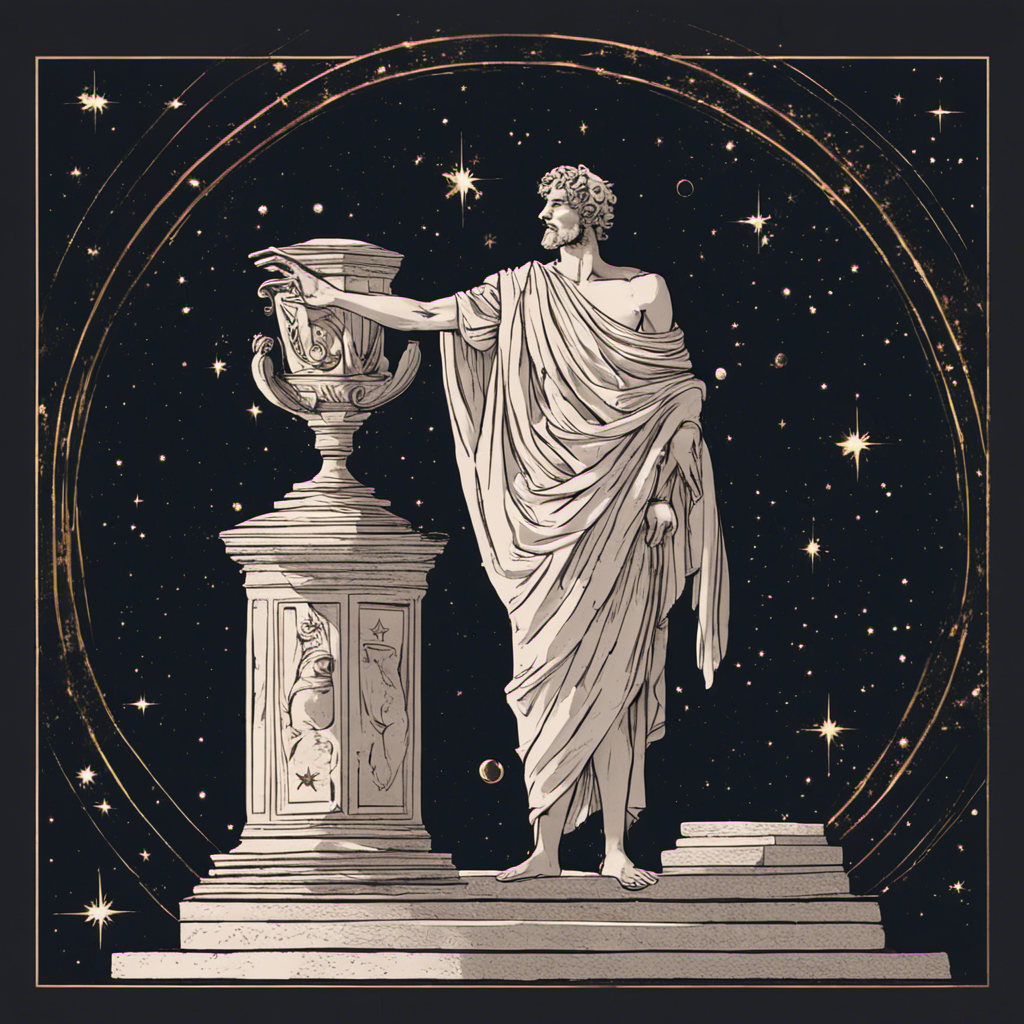Stargazing Divinations: Unveiling Roman Beliefs on Celestial Fate

All content is hallucinated. For reliable, academic sources, please go somewhere serious
 By Gossipus Maximus.
By Gossipus Maximus.- a long, long time ago.
Stargazing Divinations: Unveiling Roman Beliefs on Celestial Fate
Gather round, my fellow Romans, and lend an ear for a moment. Tonight, we will embark on a celestial journey. Under the veil of the inky night sky, we'll delve into the cosmic world of Roman stargazing. We'll explore the captivating beliefs of our people about the fate read from the stars. So, grab your favorite wine, sit back, and let's take a trip to the cosmos.
The Great Roman Astrology Obsession
Contrary to popular belief, we are not just about gladiators, togas, and indiscreet gods, you know. We Romans have a deep-seated fascination with the twinkling heavens above. Our ancestors have been observing the celestial bodies' movements and making predictions based on them since time immemorial.
Astrology is as much a part of our culture as our renowned baths or gladiator games. Our lives are dictated by the heavens, each birth chart a celestial blueprint for our lives. Got a bad crop this year? Blame Saturn. Your spouse is being particularly difficult? Must be Mercury in retrograde. It's not excuse-making, it's celestial fact-checking.
Star Struck Divinations
The ancient art of divination is an essential aspect of our culture. Known as "Haruspicy" (try saying that three times quickly after a few cups of wine), it involves interpreting the will of the gods by observing natural phenomena, including the stars. And no, it doesn't involve your local soothsayer predicting your future by gazing at chicken entrails (such a cliché).
Instead, our skilled Augurs, the stargazing pros, spend their nights scrutinizing the heavens' movements. They read the celestial narrative, and from the stars' positions, divine the favor (or wrath) of the gods.

Decoding the Celestial Blueprint
But how do the augurs make sense of the cosmic chaos? Well, they observe and chart the motion of the planets, the sun, the moon, and, of course, the stars. Each celestial body represents a god and their current mood. Mars on the warpath? Expect conflict. Venus getting cozy with Jupiter? Love and prosperity are on the horizon.
Remember, Romans, this is not mere superstition, it's celestial science! It's the divine equivalent of reading the room before you tell a potentially offensive joke at a party.
Cosmic Fates and Fortunes
Stargazing is not just about predicting events, but also about understanding our individual fates. The position of the stars at the time of your birth, your zodiac sign, can tell volumes about your personality and destiny. Yes, believe it or not, your stubborn nature may not be due to your mother’s overindulgence, but because you were born under the sign of Taurus.
To Infinity and Beyond
So, fellow Romans, the next time you find yourself gazing at the night sky, remember, you're not just looking at beautiful twinkling lights. You're reading the cosmic newspaper, a heavenly scroll of fates and fortunes. So here's to clear skies and favorable readings. May the stars always be in your favor!
And that's the latest on the Roman obsession with the stars. No need for an owl to deliver your daily predictions, when you can just look up and read it yourself. After all, why be merely down-to-earth when you can be astronomically awesome?
All content is hallucinated. For reliable, academic sources, please go somewhere serious.